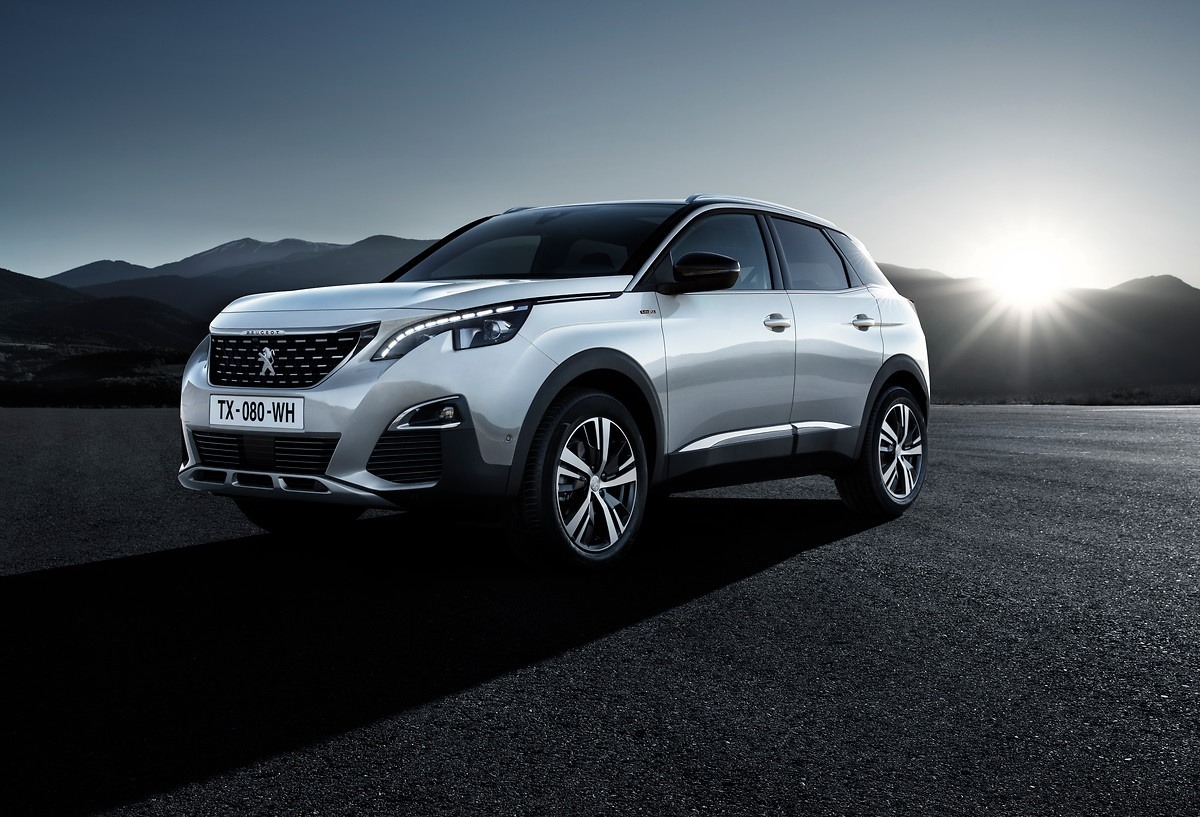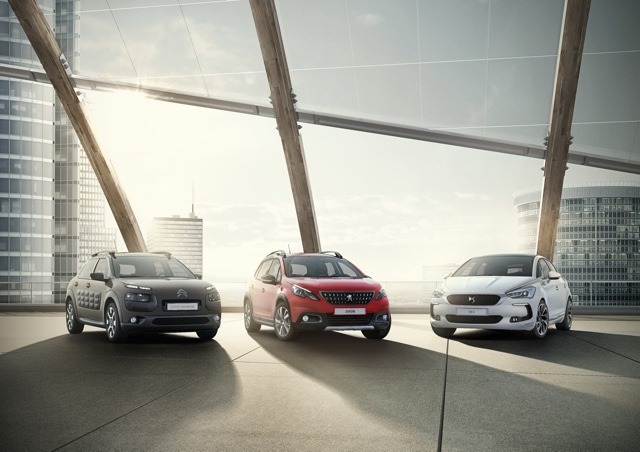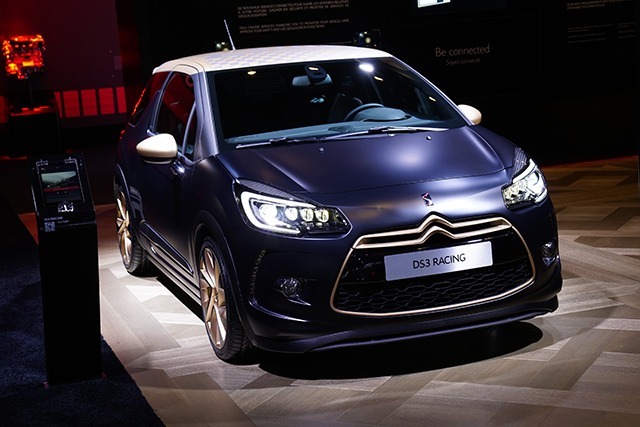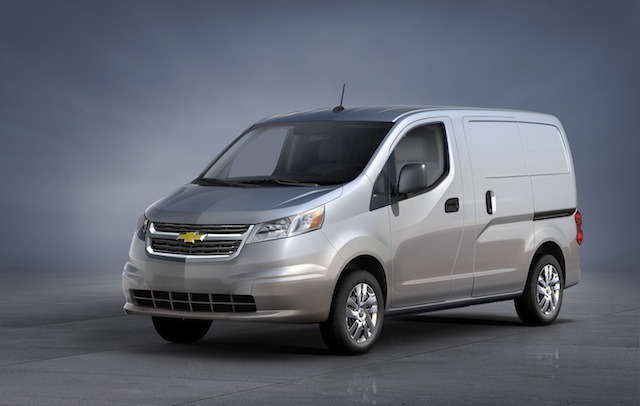Search the Community
Showing results for tags 'psa'.
-
In a discussion about their pending merger, Fiat Chrysler revealed that the combined company's future vehicles in the small to mid-size range will be built on two of PSA's platforms. The reasoning behind it is that PSA's platforms are more modern than FCA's which first debuted in 2003. They are also capable of a wider range of propulsion methods like electrification that are harder to incorporate into the aging platform that FCA is using. The smaller of the two platforms, PSA's CMP, launched last year is found under the Peugeot 208, 2008, DS 3 Crossback and the new Opel Corsa. The larger platform is called EMP2 and launched in 2016. It underpins the Peugeot 3008, 5008, 508, DS7 Crossback, Citroen C5 Aircross, and Opel Grandland. Both of these platforms could become the basis for new Jeep, Dodge, and Fiat models. The first possible FCA model to debut on one of these platforms is likely to be a small crossover for Alfa Romeo, due out in 2022. On the other hand, the Ram trucks and larger Jeep models will continue to use technology developed by FCA. The next generation Jeep Grand Cherokee is already well into development and the forthcoming Wagoneer and Grand Wagoneer are set to go into production in early 2021. The primary question mark remains around the larger Chrysler 300, Dodge Charger and Challenger, and Chrysler Pacifica. View full article
-
In a discussion about their pending merger, Fiat Chrysler revealed that the combined company's future vehicles in the small to mid-size range will be built on two of PSA's platforms. The reasoning behind it is that PSA's platforms are more modern than FCA's which first debuted in 2003. They are also capable of a wider range of propulsion methods like electrification that are harder to incorporate into the aging platform that FCA is using. The smaller of the two platforms, PSA's CMP, launched last year is found under the Peugeot 208, 2008, DS 3 Crossback and the new Opel Corsa. The larger platform is called EMP2 and launched in 2016. It underpins the Peugeot 3008, 5008, 508, DS7 Crossback, Citroen C5 Aircross, and Opel Grandland. Both of these platforms could become the basis for new Jeep, Dodge, and Fiat models. The first possible FCA model to debut on one of these platforms is likely to be a small crossover for Alfa Romeo, due out in 2022. On the other hand, the Ram trucks and larger Jeep models will continue to use technology developed by FCA. The next generation Jeep Grand Cherokee is already well into development and the forthcoming Wagoneer and Grand Wagoneer are set to go into production in early 2021. The primary question mark remains around the larger Chrysler 300, Dodge Charger and Challenger, and Chrysler Pacifica.
-
Fiat Chrysler Automobiles and Peugeot S.A. have signed a binding agreement to a 50/50 merger of their businesses. Once the merger is complete, the combined company will be the fourth largest automobile producer in the world. Based on 2018 numbers, the business will sell roughly 8.7 million vehicles annually and have revenues near €170 billion. There will be a strong balance sheet that will allow the new entity headroom to execute strategic plans. Geographically, 46% of revenue will come from Europe and 43% from North America. A number of operational efficiencies will be gained by the sharing of platforms and engine technology. The number of platforms will be reduced with approximately 6 million cars a year concentrated on just two platforms.The platform consolidations will account for approximately 40% of the estimated €3.7 billion in savings expected from the merger. Peugeot CEO Carlos Tavares will be CEO of the new company and a board member, while John Elkann of FCA will be Chairman of the Board. The completion of the combination is expected to take 12 to 15 months during which time they will be completing items to the satisfaction of antitrust and other regulatory requirements. View full article
-
Fiat Chrysler Automobiles and Peugeot S.A. have signed a binding agreement to a 50/50 merger of their businesses. Once the merger is complete, the combined company will be the fourth largest automobile producer in the world. Based on 2018 numbers, the business will sell roughly 8.7 million vehicles annually and have revenues near €170 billion. There will be a strong balance sheet that will allow the new entity headroom to execute strategic plans. Geographically, 46% of revenue will come from Europe and 43% from North America. A number of operational efficiencies will be gained by the sharing of platforms and engine technology. The number of platforms will be reduced with approximately 6 million cars a year concentrated on just two platforms.The platform consolidations will account for approximately 40% of the estimated €3.7 billion in savings expected from the merger. Peugeot CEO Carlos Tavares will be CEO of the new company and a board member, while John Elkann of FCA will be Chairman of the Board. The completion of the combination is expected to take 12 to 15 months during which time they will be completing items to the satisfaction of antitrust and other regulatory requirements.
-
Fiat Chrysler Automobiles and PSA Group have agreed to the terms of a merger just after it was announced they were talking just yesterday. PSA's board has already agreed to the deal and is awaiting approval from FCA's board which is meeting later tonight. The merger, if approved, would create the 4th largest automotive company in the world with nearly $50 billion in value. FCA Chairman John Elkann would retain his chairmanship of the new company while Peugeot CEO Carlos Tavares would stay on as CEO. The board would be comprised of six appointees from Peugeot while FCA would get five. Both companies would pay dividends to their shareholders, €3 billion from Peugeot and €5 billion from FCA plus an additional €250 million from the sale of its Comau unit. Peugeot will sell its stake in auto parts make Faurecia. Where the new company would be based has not yet been decided. Both the French and U.S. governments have been briefed on the deal. View full article
-
Fiat Chrysler Automobiles and PSA Group have agreed to the terms of a merger just after it was announced they were talking just yesterday. PSA's board has already agreed to the deal and is awaiting approval from FCA's board which is meeting later tonight. The merger, if approved, would create the 4th largest automotive company in the world with nearly $50 billion in value. FCA Chairman John Elkann would retain his chairmanship of the new company while Peugeot CEO Carlos Tavares would stay on as CEO. The board would be comprised of six appointees from Peugeot while FCA would get five. Both companies would pay dividends to their shareholders, €3 billion from Peugeot and €5 billion from FCA plus an additional €250 million from the sale of its Comau unit. Peugeot will sell its stake in auto parts make Faurecia. Where the new company would be based has not yet been decided. Both the French and U.S. governments have been briefed on the deal.
-
PSA CEO Carlos Tavares said on the BFM Business radio station none of the brands would be let go after the merger of PSA and FCA is complete. He said it will be a challenge to manage all of the brands to cover the market, but that he sees "that all these brands, without exception, have one thing in common: they have a fabulous history." While acknowledging that the combined companies would have a significant number of brands, it would still be lower than the number Volkswagen manages. The combined companies would field Peugeot, Citroën, DS, Fiat, Opel, Vauxhall, Fiat, Chrysler, Dodge, Jeep, Ram, Alfa-Romeo, Maserati, and Lancia. Both companies will aim for efficiencies of scale and are are willing to make concessions to the European Union in order to get the okay to merge.
-
PSA CEO Carlos Tavares said on the BFM Business radio station none of the brands would be let go after the merger of PSA and FCA is complete. He said it will be a challenge to manage all of the brands to cover the market, but that he sees "that all these brands, without exception, have one thing in common: they have a fabulous history." While acknowledging that the combined companies would have a significant number of brands, it would still be lower than the number Volkswagen manages. The combined companies would field Peugeot, Citroën, DS, Fiat, Opel, Vauxhall, Fiat, Chrysler, Dodge, Jeep, Ram, Alfa-Romeo, Maserati, and Lancia. Both companies will aim for efficiencies of scale and are are willing to make concessions to the European Union in order to get the okay to merge. View full article
-
According to a report in the Wall Street Journal, Fiat Chrysler Automobiles and PSA are in merger talks. This after the failed merger negotiations last spring between FCA and Renault. The merger is reportedly an all-share merger of equals with PSA CEO Carlos Tavares at the helm as CEO and FCA Chairman John Elkann retaining his position in the new company. The "talks are fluid" and the paper reported that "no guarantee that any final agreement will be reached". FCA had previously turned down a merger offer from PSA back in March. PSA is still digesting their acquisition of Opel from General Motors. View full article
-
According to a report in the Wall Street Journal, Fiat Chrysler Automobiles and PSA are in merger talks. This after the failed merger negotiations last spring between FCA and Renault. The merger is reportedly an all-share merger of equals with PSA CEO Carlos Tavares at the helm as CEO and FCA Chairman John Elkann retaining his position in the new company. The "talks are fluid" and the paper reported that "no guarantee that any final agreement will be reached". FCA had previously turned down a merger offer from PSA back in March. PSA is still digesting their acquisition of Opel from General Motors.
-
PSA Group is starting to sound a bit desperate for a merger these days. First they bought GM's Opel Unit for $1.54b, later demanding a roughly 50% refund due to issues stemming from extra rosy sales forecasts and emissions regulations trouble. PSA has quickly turned around the Opel unit into a profit center instead of the loss-maker it was under GM control. More recently, Peugeot was seen to be dancing with FCA only to be rebuffed when it came to light that any merger between the two companies would come in the form of PSA stock. Now PSA Group CEO Carlos Tavares says that he would be interested in a merger with Jaguar Land Rover, saying he would be interested in having a more premium brand above their current DS line. Jaguar Land Rover is struggling with sales declines, but parent company Tata has said "There is no truth to the rumor that Tata Motors is looking to divest its stake in JLR". So it is back to the dance floor for PSA without a partner. Lets see who they come up with next. View full article
- 6 replies
-
- jaguar
- jaguar land rover
-
(and 5 more)
Tagged with:
-

Peugeot Interested in Jaguar-Land Rover; Tata says "Not Interested"
Drew Dowdell posted an article in Peugeot
PSA Group is starting to sound a bit desperate for a merger these days. First they bought GM's Opel Unit for $1.54b, later demanding a roughly 50% refund due to issues stemming from extra rosy sales forecasts and emissions regulations trouble. PSA has quickly turned around the Opel unit into a profit center instead of the loss-maker it was under GM control. More recently, Peugeot was seen to be dancing with FCA only to be rebuffed when it came to light that any merger between the two companies would come in the form of PSA stock. Now PSA Group CEO Carlos Tavares says that he would be interested in a merger with Jaguar Land Rover, saying he would be interested in having a more premium brand above their current DS line. Jaguar Land Rover is struggling with sales declines, but parent company Tata has said "There is no truth to the rumor that Tata Motors is looking to divest its stake in JLR". So it is back to the dance floor for PSA without a partner. Lets see who they come up with next.- 6 comments
-
- jaguar
- jaguar land rover
-
(and 5 more)
Tagged with:
-
PSA Group is demanding a refund from General Motors of between $711 million and $948 million stemming from the purchase of Opel by PSA. PSA is claiming that GM misrepresented Opel's emissions reduction strategy during the due diligence negotiations. EU Emissions regulations for 2021 set a target reduction of 130 g/km to 95 g/km. Regulators can fine manufacturers $113 per vehicle per gram over the limit. Any vehicle at the 130 g/km limit today would see fines of $3,955 per car sold. PSA claims that GM's plan for reaching that target relied on unrealistically high sales of the Opel Ampera-E, the European model of the US built Chevrolet Bolt EV, and extra rosy forecasts of diesel sales. Opel loses $11,850 per Ampera-E sold. PSA has already cut sales of the Ampera-E in Norway and raised its price at least $6,700 for the rest of Europe. Adding to the trouble are falling diesel sales in Europe as consumers move to less efficient gasoline engines. Even during the sale negotiations, PSA was was aware that GM was forecasting Opel to miss the 95 g/km target by 3.7 grams. Take the Ampera-E forecast of 20,000 vehicles out out of the picture and that number jumps to 6 g/km. Adjusting for falling diesel sales and Opel will miss its target by 10 grams. Such a large miss could result in fines approaching the entire purchase price of Opel ($1.54 billion). PSA is now speeding into production electric or plug-in hybrid variants of Opel's mainstay cars, with the entire lineup being converted to PSA platform architecture by 2024. PSA must now go through GM lawyers and arbitration to determine if they will get any refund from GM. View full article
-

PSA Demanding Roughly 50% Refund From GM for Opel Purchase
Drew Dowdell posted an article in General Motors
PSA Group is demanding a refund from General Motors of between $711 million and $948 million stemming from the purchase of Opel by PSA. PSA is claiming that GM misrepresented Opel's emissions reduction strategy during the due diligence negotiations. EU Emissions regulations for 2021 set a target reduction of 130 g/km to 95 g/km. Regulators can fine manufacturers $113 per vehicle per gram over the limit. Any vehicle at the 130 g/km limit today would see fines of $3,955 per car sold. PSA claims that GM's plan for reaching that target relied on unrealistically high sales of the Opel Ampera-E, the European model of the US built Chevrolet Bolt EV, and extra rosy forecasts of diesel sales. Opel loses $11,850 per Ampera-E sold. PSA has already cut sales of the Ampera-E in Norway and raised its price at least $6,700 for the rest of Europe. Adding to the trouble are falling diesel sales in Europe as consumers move to less efficient gasoline engines. Even during the sale negotiations, PSA was was aware that GM was forecasting Opel to miss the 95 g/km target by 3.7 grams. Take the Ampera-E forecast of 20,000 vehicles out out of the picture and that number jumps to 6 g/km. Adjusting for falling diesel sales and Opel will miss its target by 10 grams. Such a large miss could result in fines approaching the entire purchase price of Opel ($1.54 billion). PSA is now speeding into production electric or plug-in hybrid variants of Opel's mainstay cars, with the entire lineup being converted to PSA platform architecture by 2024. PSA must now go through GM lawyers and arbitration to determine if they will get any refund from GM. -
The heads of FCA and PSA separately stated to journalists at the Geneva auto show that their respective companies remain open to the idea of partnering or merging with another company, though neither named which potential suitor that could be. Robert Peugeot, who's family owns around 14% of PSA group said, "We supported the [Opel acquisition] from the start,” he told Les Echo in an interview held Monday. “If another opportunity comes up, we will not be braking, [PSA Group CEO Carlos Taveres] knows that." Meanwhile another potential partner could be Jaguar Land Rover. Merging with either company would give PSA better access to the US Market, something Peugeot is already planning on doing by 2026. For FCA, the benefits would be a more global partner and access to technology that would help meet Europe's strict emissions regulations. On the flip side, it would mean 3 additional brands on top of the 7 that FCA already has. View full article
-
The heads of FCA and PSA separately stated to journalists at the Geneva auto show that their respective companies remain open to the idea of partnering or merging with another company, though neither named which potential suitor that could be. Robert Peugeot, who's family owns around 14% of PSA group said, "We supported the [Opel acquisition] from the start,” he told Les Echo in an interview held Monday. “If another opportunity comes up, we will not be braking, [PSA Group CEO Carlos Taveres] knows that." Meanwhile another potential partner could be Jaguar Land Rover. Merging with either company would give PSA better access to the US Market, something Peugeot is already planning on doing by 2026. For FCA, the benefits would be a more global partner and access to technology that would help meet Europe's strict emissions regulations. On the flip side, it would mean 3 additional brands on top of the 7 that FCA already has.
-
The rumors that PSA and FCA may merge can be put to bed now. Sources familiar with the discussion told the Wall Street Journal that executives from the respective companies are no longer in talks. FCA was reticent about the idea because it would increase the companies reliance on the struggling European market, and the Agnelli family, who has a controlling stake in FCA, was not interested in a deal that was paid for with PSA stock. PSA would need to use equity to pay for FCA because they are still digesting their acquisition of Opel from General Motors. Had they merged, the combined company would produce over 9 million vehicles per year, putting them on a playing field with Volkswagen and Nissan-Renault. It would also give PSA a much needed foothold into the U.S. market for their planned 2026 re-entry.
-
The rumors that PSA and FCA may merge can be put to bed now. Sources familiar with the discussion told the Wall Street Journal that executives from the respective companies are no longer in talks. FCA was reticent about the idea because it would increase the companies reliance on the struggling European market, and the Agnelli family, who has a controlling stake in FCA, was not interested in a deal that was paid for with PSA stock. PSA would need to use equity to pay for FCA because they are still digesting their acquisition of Opel from General Motors. Had they merged, the combined company would produce over 9 million vehicles per year, putting them on a playing field with Volkswagen and Nissan-Renault. It would also give PSA a much needed foothold into the U.S. market for their planned 2026 re-entry. View full article
-
PSA has been mulling a return to the United states since at least 2014. We reported in March of 2016 that DS was the most likely brand to mark the return of the French automaker to these shores. Now, PSA has made the announcement that Peugeot has been the brand selected, beating out Citroën, DS, and the recently acquired Opel brand. Peugeot left the U.S. market in 1991 after selling only 4,292 vehicles the year prior. PSA will start in 15 U.S. states and 4 Canadian provinces that have a higher rate of import vehicle sales. The vehicles would be sourced from both Europe and China. No firm time frame has been announced for the arrival of Peugeot in the U.S., the company only states that it wants to have its vehicles here by 2026. View full article
-
PSA has been mulling a return to the United states since at least 2014. We reported in March of 2016 that DS was the most likely brand to mark the return of the French automaker to these shores. Now, PSA has made the announcement that Peugeot has been the brand selected, beating out Citroën, DS, and the recently acquired Opel brand. Peugeot left the U.S. market in 1991 after selling only 4,292 vehicles the year prior. PSA will start in 15 U.S. states and 4 Canadian provinces that have a higher rate of import vehicle sales. The vehicles would be sourced from both Europe and China. No firm time frame has been announced for the arrival of Peugeot in the U.S., the company only states that it wants to have its vehicles here by 2026.
-

PSA Peugeot Citroën Announces A Return to the U.S.
William Maley posted an article in Automotive Industry
It has been hinted at and rumored for a few years. But today, PSA Peugeot Citroën announced they would be making a return to the U.S. During a presentation for analysts and investors at PSA's headquarters in Paris, CEO Carlos Tavares unveiled a ten-year plan that could result in the launch of Citroën, DS, and Peugeot vehicles to the U.S. The plan would be split up into three steps. Step one: Enter the U.S. as a mobility operator from 2017, possibly with Bollore,” said Tavares. Bollore is a French company that builds batteries and compact EVs that are mainly used by a French car-sharing service, Autolib. Citroën and Bollore are currently working together to bring a concept EV into production. Step two: Start up a car-sharing program (i.e. Zipcar, GM's Maven) that would be owned and operated by PSA. Step three: If the first two steps are successful, PSA could return “to sell cars in the U.S. supported by regional sourcing when appropriate,” Tavares said. Tavares says PSA has formed a team to study the U.S. market, what customers like and dislike; and the regulatory requirements. As Automotive News notes, this is wildly different than the plan provided by Yves Bonnefont, CEO of DS back in 2014. Bonnefont explained the strategy was to sell DS vehicles in 200 large cities around the world after 2020 - including the U.S. “We want to make DS a global premium brand, and you cannot be global without the U.S.,” said Bonnefont. Why ten years? A possible reason may come down to PSA Peugeot Citroën not having any presence in the U.S. As we noted in our report last month, PSA doesn't have any connections to dealers or manufacturers. Also, PSA closed down their U.S. office in 2013 as a way to cut costs. Source: Automotive News (Subscription Required)- 6 comments
-
It has been hinted at and rumored for a few years. But today, PSA Peugeot Citroën announced they would be making a return to the U.S. During a presentation for analysts and investors at PSA's headquarters in Paris, CEO Carlos Tavares unveiled a ten-year plan that could result in the launch of Citroën, DS, and Peugeot vehicles to the U.S. The plan would be split up into three steps. Step one: Enter the U.S. as a mobility operator from 2017, possibly with Bollore,” said Tavares. Bollore is a French company that builds batteries and compact EVs that are mainly used by a French car-sharing service, Autolib. Citroën and Bollore are currently working together to bring a concept EV into production. Step two: Start up a car-sharing program (i.e. Zipcar, GM's Maven) that would be owned and operated by PSA. Step three: If the first two steps are successful, PSA could return “to sell cars in the U.S. supported by regional sourcing when appropriate,” Tavares said. Tavares says PSA has formed a team to study the U.S. market, what customers like and dislike; and the regulatory requirements. As Automotive News notes, this is wildly different than the plan provided by Yves Bonnefont, CEO of DS back in 2014. Bonnefont explained the strategy was to sell DS vehicles in 200 large cities around the world after 2020 - including the U.S. “We want to make DS a global premium brand, and you cannot be global without the U.S.,” said Bonnefont. Why ten years? A possible reason may come down to PSA Peugeot Citroën not having any presence in the U.S. As we noted in our report last month, PSA doesn't have any connections to dealers or manufacturers. Also, PSA closed down their U.S. office in 2013 as a way to cut costs. Source: Automotive News (Subscription Required) View full article
-

Rumorpile: PSA Plans A Return To The U.S. With the DS Brand
William Maley posted an article in Automotive Industry
Consider this: Citroen pulled out of the U.S. in the eighties, while Peugeot would leave in 1991. But according to Automotive News, PSA/Peugeot-Citroen could be making a return with their DS brand. “We want to make DS a global premium brand, and you cannot be global without the U.S.,” said DS CEO Yves Bonnefont. The DS lineup was previously a division of the Citroen brand, providing premium models to compete with likes of MINI Cooper and Audi A3. However, PSA made the decision to make DS a stand alone brand this year. Bonnefont said a decision on making a return to the U.S. would come in 2017 at the earliest, and sales would not begin sometime after 2020. Source: Automotive News (Subscription Required) William Maley is a staff writer for Cheers & Gears. He can be reached at [email protected] or you can follow him on twitter at @realmudmonster. -
Consider this: Citroen pulled out of the U.S. in the eighties, while Peugeot would leave in 1991. But according to Automotive News, PSA/Peugeot-Citroen could be making a return with their DS brand. “We want to make DS a global premium brand, and you cannot be global without the U.S.,” said DS CEO Yves Bonnefont. The DS lineup was previously a division of the Citroen brand, providing premium models to compete with likes of MINI Cooper and Audi A3. However, PSA made the decision to make DS a stand alone brand this year. Bonnefont said a decision on making a return to the U.S. would come in 2017 at the earliest, and sales would not begin sometime after 2020. Source: Automotive News (Subscription Required) William Maley is a staff writer for Cheers & Gears. He can be reached at [email protected] or you can follow him on twitter at @realmudmonster. View full article
-

General Motors Considering Selling Rebranded Peugeot Vans In U.S.
William Maley posted an article in General Motors
William Maley Staff Writer - CheersandGears.com July 11, 2013 A new report from Reuters cites France's La Tribune story that General Motors is in talks with PSA Peugeot-Citroën about possibly selling vans in the United States. The report doesn't say which vans are in consideration, only saying that van would be sold under ofne of GM's brand, most likely Chevrolet. This news doesn't come as a surprise. GM currently has some of the oldest full-size vans on the marketplace and with fresh models coming in from Europe, GM could use all the help they can get. Also, GM recently struck a deal with Nissan to sell the NV200 as the Chevrolet City Express. Source: Reuters William Maley is a staff writer for Cheers & Gears. He can be reached at [email protected] or you can follow him on twitter at @realmudmonster.- 40 comments
-
- Citroen
- General Motors
-
(and 3 more)
Tagged with:


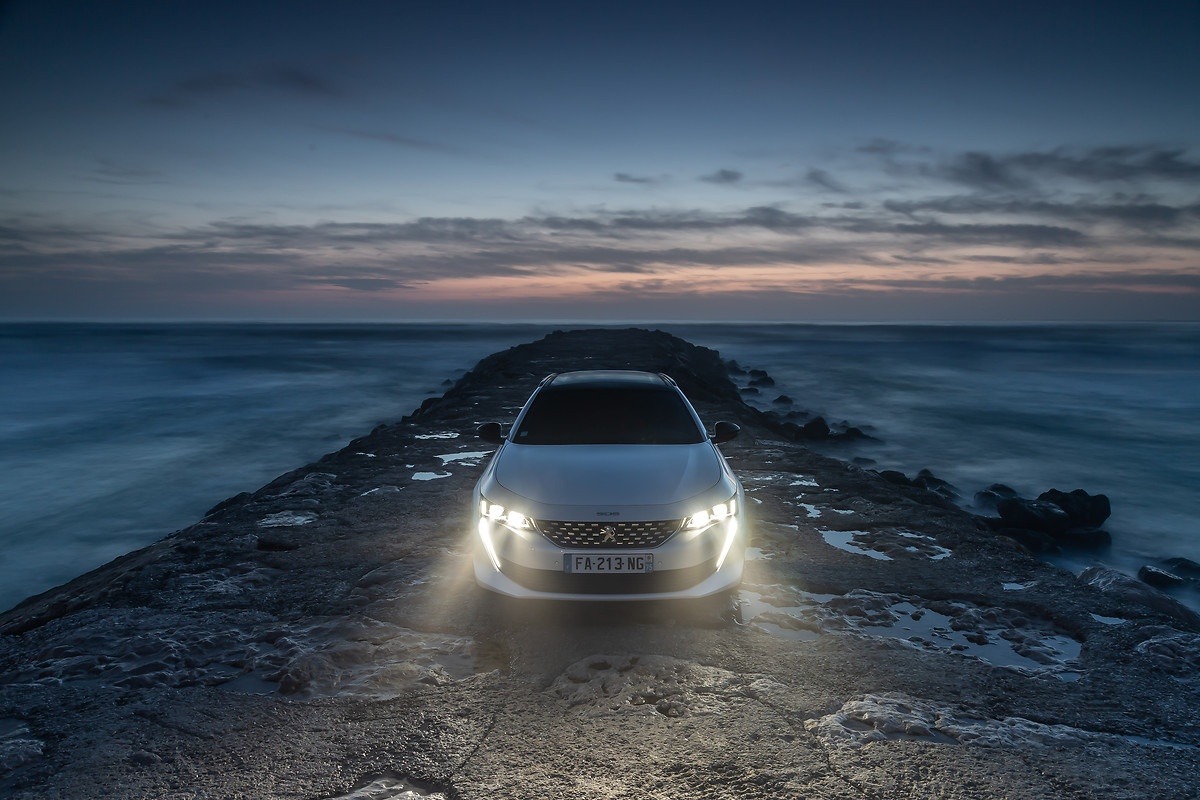
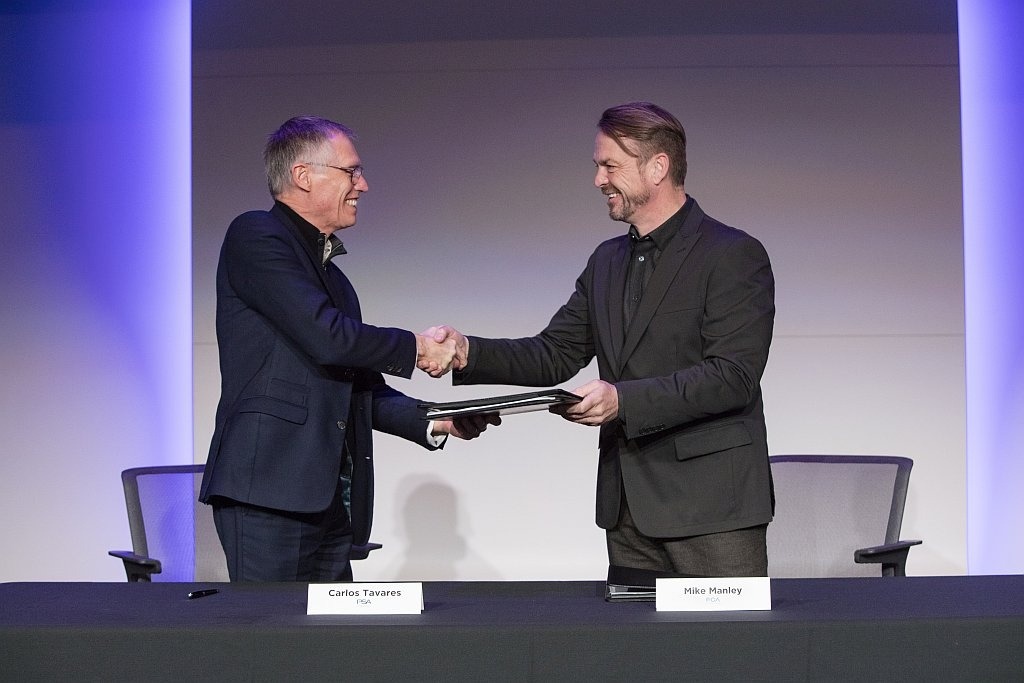


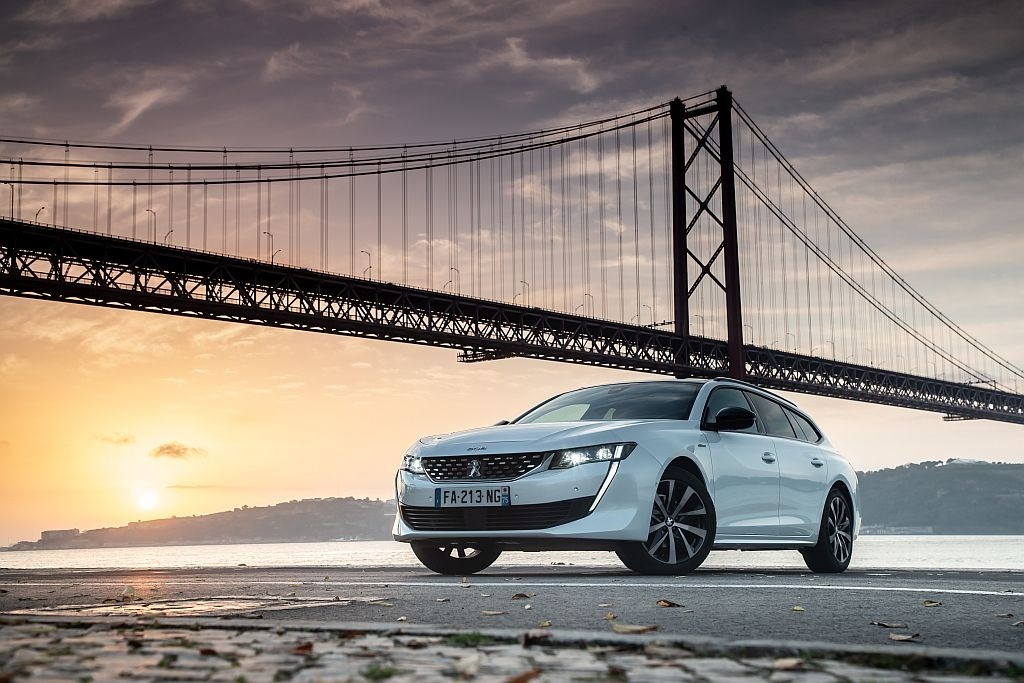

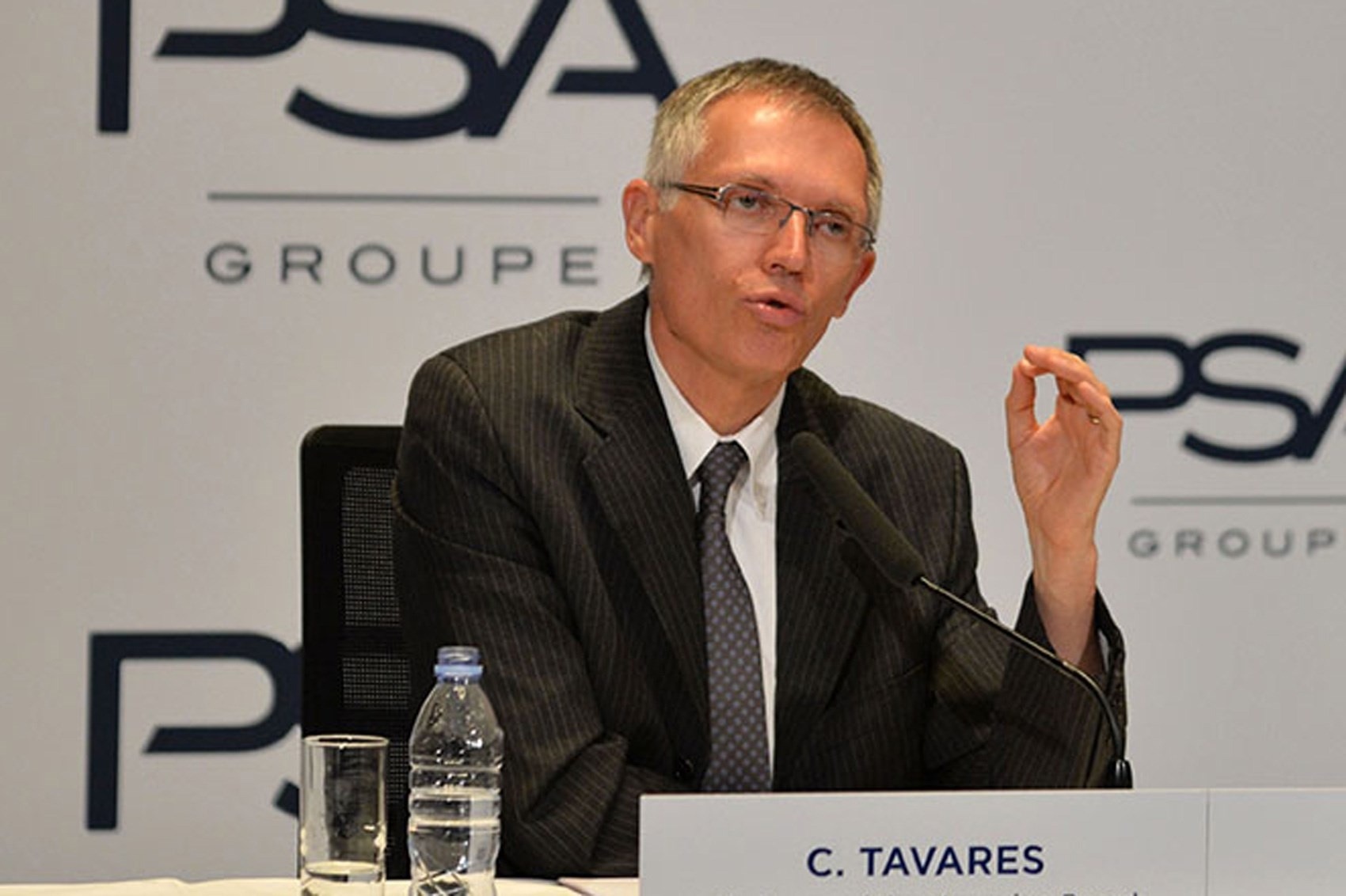
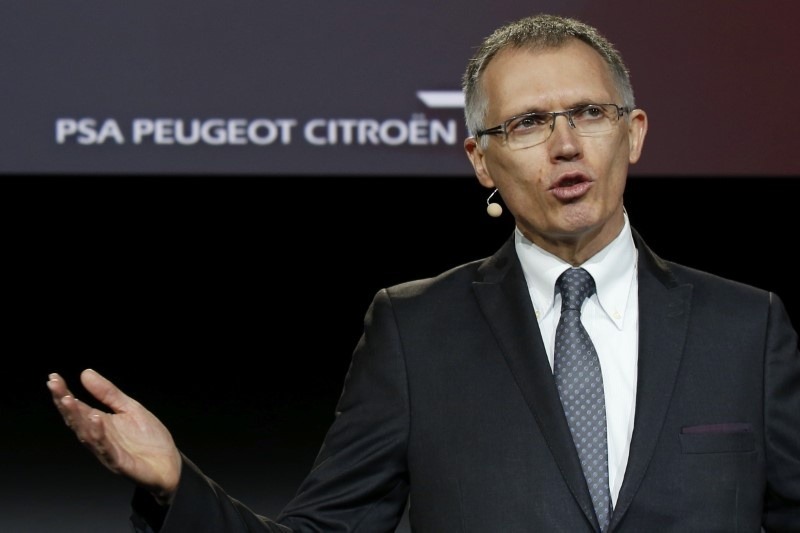


.jpg.5e07f9027f2fc2fff7b05eb99c609d33.jpg)
